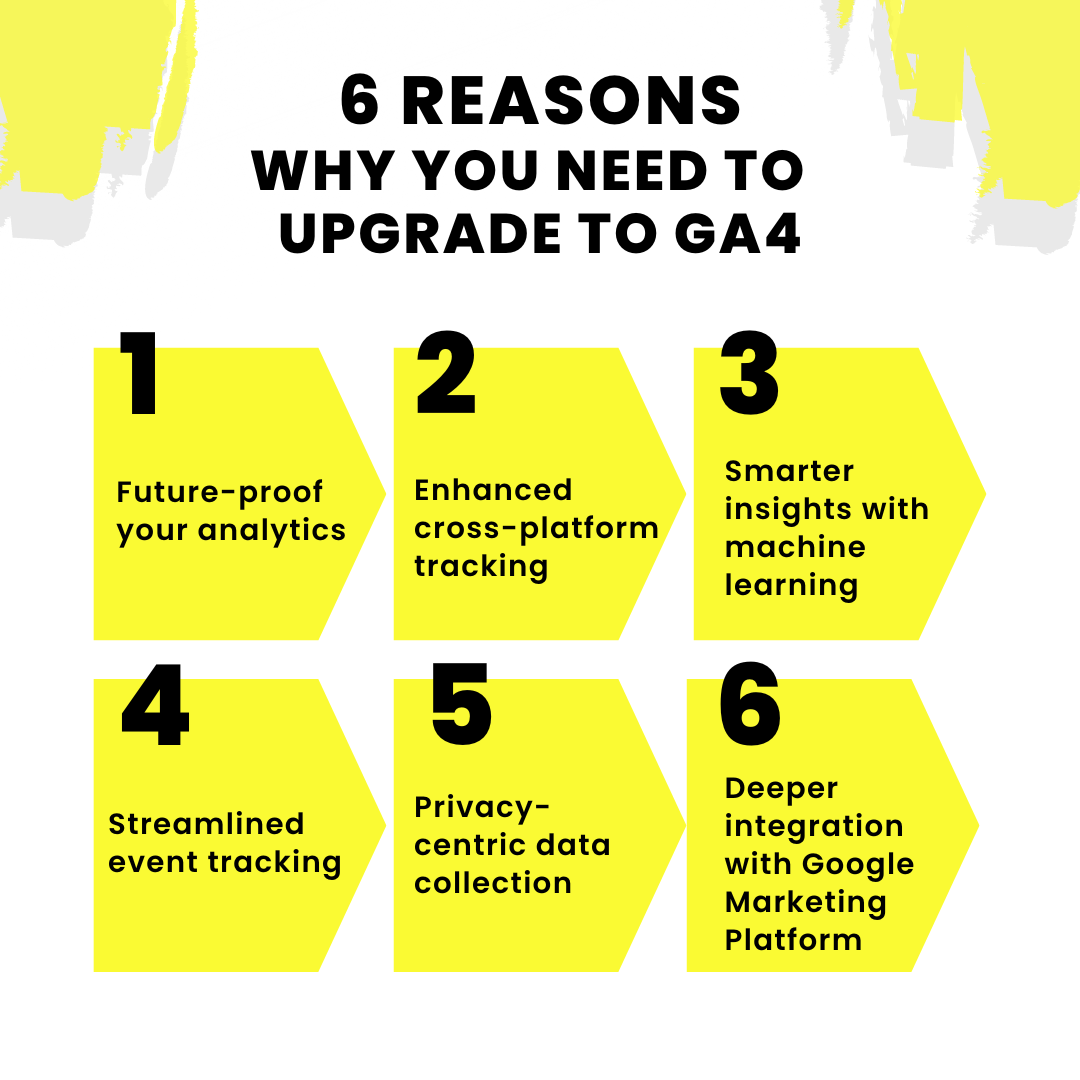In today’s digital age, data is the key to unlocking insights and making strategic business decisions. Google Analytics (GA) has long been a powerful tool for understanding website and app performance, however in 2020 Google launched its latest analytics tool, Google Analytics 4 (GA4), which was arguably the biggest update of the platform. Now after 3 years of GA 4 being around as an option alongside the default tool, Universal Analytics or GA3, Google is solidifying the status of the latest release by completely taking off Universal Analytics from its platform.
What is GA4?
Google Analytics is a free service that allows you to track any traffic and engagement that happens across your website and apps. GA4, or Google Analytics 4, is the latest version of the Google Analytics platform. It represents a significant upgrade and a shift from the previous version known as Universal Analytics. GA4 introduces several new features and capabilities designed to provide businesses with more comprehensive and insightful data analysis.
GA4 being a very advanced tool, introduces several new features and capabilities designed to provide businesses with more comprehensive and insightful data analysis.
When is it happening?
On 1st July 2023, all standard Universal Analytics properties will stop processing new data. This means that from July 2023, no website activity will be recorded through Universal Analytics.
Furthermore, Google announced that existing Universal Analytics properties would only be able to be accessed for around 6 months after this date. This means that all historical data could be gone forever.
Why your business needs GA4?

- Future-proof your analytics
GA 4 Analytics represents the future of Google Analytics. It is designed to adapt to the evolving digital landscape, including emerging technologies and privacy changes. By upgrading now, you ensure that your business remains at the forefront of analytics, ready to leverage new features and capabilities as they are introduced.
- Enhanced cross-platform tracking
One of the major advantages of GA 4 Analytics is its ability to track user interactions across multiple platforms, including websites, mobile apps, and offline touchpoints. This holistic view provides valuable insights into user behavior and engagement, allowing you to optimize your marketing efforts and improve the overall customer experience.
- Smarter insights with machine learning
GA 4 Analytics incorporates advanced machine learning capabilities that can automatically uncover meaningful trends and insights from your data. With the power of machine learning, you can identify hidden patterns, predict user behavior, and discover growth opportunities. These smart insights enable you to make data-driven decisions that drive results and improve your bottom line.
- Streamlined event tracking
Event tracking is a crucial aspect of understanding user interactions on your digital properties. GA 4 Analytics simplifies event tracking by introducing a more flexible and streamlined approach. The model uses an event-driven data model, allowing you to define and track events based on your specific business needs. This flexibility gives you granular control over the events you want to measure, ensuring you capture the most relevant data for analysis.
- Privacy-centric data collection
Privacy concerns are becoming increasingly important for businesses and users alike. GA 4 Analytics addresses these concerns by providing privacy-centric data collection methods. It aligns with emerging privacy regulations, such as the General Data Protection Regulation (GDPR), by providing more options for data control and consent management. By upgrading to GA 4 Analytics, you can ensure that your data collection practices are compliant with privacy regulations, enhancing trust with your customers.
- Deeper integration with Google Marketing Platform
For businesses already leveraging Google Marketing Platform (GMP), upgrading to GA 4 Analytics brings additional benefits. GA 4 Analytics seamlessly integrates with GMP, allowing you to combine data from various sources for a unified view of your marketing efforts. This integration empowers you to gain deeper insights into campaign performance, optimize your marketing spend, and deliver more personalized experiences to your target audience.
The transition to GA 4 Analytics is a proactive step for businesses looking to stay ahead in the world of data analytics. The key thing to remember is that you have time to get everything configured and familiarize yourself with the platform. But there is a defined deadline, so the sooner you act the better.
Don’t wait; make the move to GA 4 Analytics and unlock the full potential of your data-driven decision-making process.